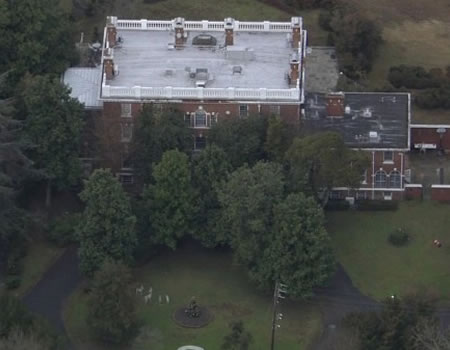HIGH returns on investment, stable economy and security have been adduced as major factors for shift in property’s investment location to the United Kingdom.
According to the former President, Nigerian Institute of Building, Mr Chucks Omeife, in his analysis on what is influencing Nigerians’ interest in UK properties, the reason for this shift in investment location is very obvious to a discerning mind and business-minded individuals.

He explained that investors would go to places where return on investment is not only high but guaranteed.
He added that the current free fall of the naira compared to other currencies was another reason, emphasising that the instability of the naira was a major factor for flight of investment portfolio to other stable economy by individuals and organisations.
Omeife said: “The current Nigeria economic situation is anti-investment and except the investor has a way of benefiting from the system, there is no added value that can be derived from investing here, so it seems.”
He pointed out that the problem of insecurity and power were also major issues most investors consider.
“Investment everywhere is a projection of possible returns against prevailing environmental and other associated risk. Once the risk assessment indices indicate positive outcome, investors are encouraged to gravitate towards such location and create an investment portfolio,” he said.
Investing abroad, Omeife said was not a complicated process as ones concern always aware of tenor of investment and predictable returns.
According to him, buying property abroad has no legal impediments, adding that the processes are simplified.
Despite this, he explained that there were specific processes and regulations that must be followed such as providing necessary documentation and understanding the country’s property law.
“In most cases, one will require the services of a solicitor to process necessary documentation and ensure the investment is secured and in line with existing and prevailing laws and regulations,” he said.
Commenting on current economic challenges in Nigeria, Omeife noted that while the effect of economic hardship is biting hard on the citizenry, some physical development projects are still going on across the country.
Despite the daily rising cost of building materials as a result of declining naira value, he said that construction projects littered the cranes and crannies of the country.
“The interpretation of the situation beats all economic indices and cannot be supported by any economic principle or postulation.
“Is it possible that the volume of money in circulation and used for such transactions on daily basis might not be within the banking or financial system? “This will be a good case study as the real estate sector is going on as if all is well,” he said.
In saner climes, Omeife pointed out that sources of such funds would have been a matter of investigation to ensure that the real estate was not being used as a conduit for money laundering.
“However, it is possible some of the funds used in financing real estate development are from Nigerians in diaspora who are taking advantage of the exchange rate.
“Despite this, most individual developments have been greatly affected as purchasing power has been seriously depleted, sadly due to galloping cost of building materials and cost of living.
The prevailing economic situation in the country, he said had impacted negatively on professional services in the built environment sector.
“When we look at Manslow hierarchy of needs and progress to its three basic universal needs, we have food, clothing and shelter. It is only when a man is able to comfortably feed and cloth himself that he can start thinking of shelter.
“Shelter in this case refers to housing. Even before this economic problem, a lot of people do not appreciate professional services in the built environment because of the low level of implementation and enforcement. This has given quacks an upper hand in the industry to the detriment of professionals.
“In most ongoing developments, professionals are seldom involved both at the design stage and at the construction stage. Lot of clients always think engaging a professional is expensive but they do not realise that their involvement will guarantee the project and enable them to get value for their investment,” Omeife said.
READ ALSO: London market premium rises 10%, property leads







